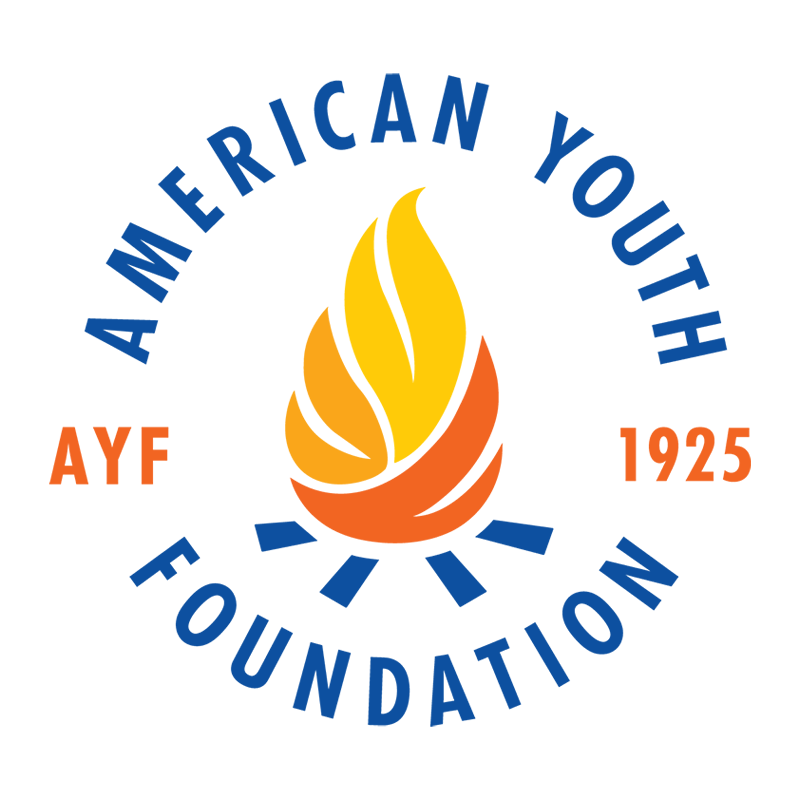Members of the National Leadership Conference Second Year class sat in small groups, listening intently as Dr. Andrew Cullison, Director of the Prindle Institute for Ethics at Depauw University, explained a complex scenario.
“You’re high school students and you learn that a good friend of yours admitted to being guilty of posting hateful graffiti in another student’s locker. What do you do?”
NLC participants embraced the challenge, exploring the complicated ethical and moral questions at the heart of this dilemma. For the next hour, they learned to identify systems of moral reasoning that can be used as a pathway through the difficult and conflicting decisions they will make. Small groups talked and created lists of approaches to the issue.
Rather than seeking a single solution, the workshop introduced ways of thinking that fully engaged all of their capacities around what AYF calls the “M-Fold” or the mental fold.
2019 saw the launching of a new partnership with the Prindle Institute, which brought a college professor and staff to NLC to facilitate a series of moral reasoning workshops.
“I was so energized by witnessing the passion that the NLC participants brought to these sessions,” said Matt Loper, Director of AYF Programs who attended the sessions. “They were all in, completely engaged in looking at the really complicated ideas, such as implicit bias, which are constantly in play as each of us moves through the world.”
The idea for AYF’s partnership with the Prindle Institute came from longtime Miniwanca camp and staff member Emily Knuth, who now serves as the Institute’s Assistant Director of Events and Engagement. While at Miniwanca dropping off her children at Girls Camp and Boys Camp, she was struck by the continuity of the mission of both organizations.
“It makes perfect sense to bring these organizations together as they’re both looking at supporting youth in finding their capacity to act on their values,” said Knuth.
To see the partnership in action at NLC, it’s clear that the Prindle Institute staff are bringing a deep and passionate understanding of complex ideas that are a part of the mental fold. For the second-year participants, these sessions with the Prindle faculty gave them the chance to wade into some of the most complicated dilemmas they will face as leaders and a chance to refine their capacity to lead, grounded in their deepest held values.
In a follow up session the next day, Dr. Cullison offered to reflect upon any ethically “charged” questions they had on their mind and thereby provide more examples of using moral reasoning in the face of highly complex situations. The participants were practically tripping over one another in order to bring their own real-life ethical quandaries in the spotlight for a few minutes.
They asked questions ranging from the deeply personal: “What are the ethical obligations of friends of those who use, abuse, or are addicted to drugs?” to the larger societal wrestles of the day: “When is it appropriate for a nation to close its borders to refugees?” to ones in which they were seeking more support and guidance for whatever may come their way: “What if you just don’t know what to do in a tough situation?” and “Is it even possible to have an unbiased reaction?”
The Prindle Institute’s approach to grappling with moral reasoning is to focus on the eight most common moral frameworks people use when making difficult decisions. By learning to name the systems in place, NLC participants got in touch with their individual values, beginning to feel which of these are in motion in their own lives. By focusing closely on the ethical issues that are woven into contemporary life, they learn how to move with agility through competing values and claims.
The second session with Dr. Cullison was meant to run an hour, and it ended up taking up the entire three-hour morning block that day. NLC’s young leaders brought a palpable energy to the session, diving deep into questions that deeply matter in their daily lives. Their insightful questions revealed their sincere desire to lead toward a better future; looking for new ways to understand the issues that are impacting modern generations — climate change, racial bias, inequity in education, activism and capitalism, among others.
As their experience continued, they began to realize that the practice of moral reasoning doesn’t offer easy answers — instead it asks them to engage with their full hearts and minds, ready to grapple with their beliefs and their peers and to come to the “most right solution” to the challenges they face.
“Seeing energy and enthusiasm in today’s youth to grapple with critical ethical issues is one of the most rewarding aspects of this work,” said Dr. Cullison. “I was blown away by the depth of thought they were bringing to the table. NLC lit some kind of fire in these students that I hope never burns out, and it feels really good to partner with an organization like AYF to develop the next generation of morally thoughtful leaders.”
The AYF looks forward to continued partnership with the Prindle Institute in future summers. Plans are underway for a return to next year’s National Leadership Conference, as well as a new opportunity for Prindle Interns to serve on the summer camp staff at Miniwanca. Sharing best practice and engaging in the complexities of moral reasoning are a vital addition to our ongoing work of inspiring youth to reach for their best.

